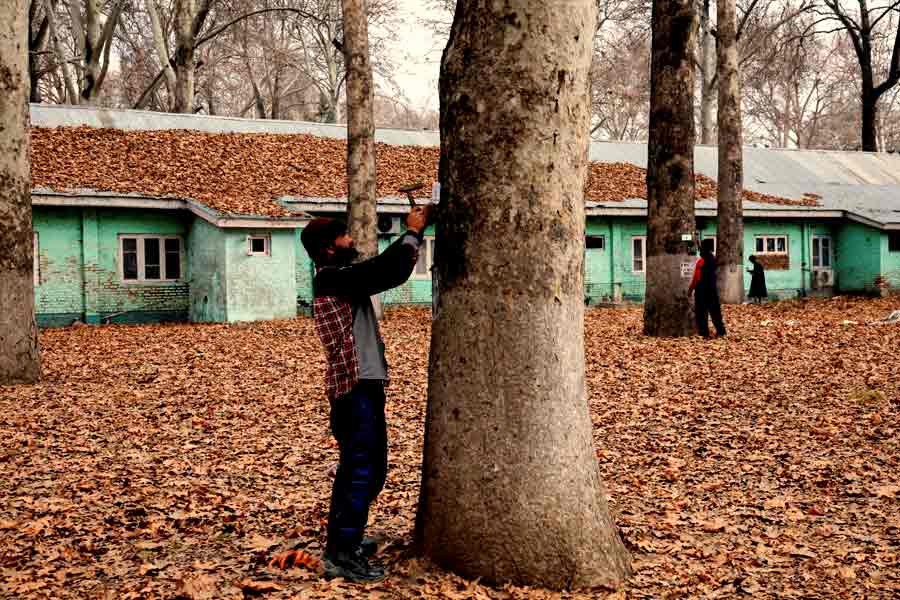 Wednesday, 22 January 2025
Wednesday, 22 January 2025
 Wednesday, 22 January 2025
Wednesday, 22 January 2025
The Supreme Court of India on Wednesday slammed the concept of 'bulldozer justice' – demolishing homes of those accused of crimes – and laid down pan-India guidelines on demolition of properties by the State.
In the background section of Wednesday’s judgment, the Supreme Court pointed out it was on a batch of writ petitions “filed under Article 32 of the Constitution of India seeking to raise the grievance on behalf of various citizens whose residential and commercial properties have been demolished by the state machinery, without following the due process of law, on the ground of them being involved as an accused in criminal offences”.
The court clearly said the executive cannot become a judge, declare an accused as guilty and demolish their house.
"If the executive, in an arbitrary manner, demolishes the house of a citizen only on the ground that they are accused of a crime, then it acts contrary to the principles of rule of law," a bench of Justice B.R. Gavai and Justice K.V. Viswanathan said.
Passing a slew of directions, the bench said: "No demolition should be carried out without a prior show cause notice returnable either in accordance with the time provided by the local municipal laws or within 15 days time from the date of service of such notice, whichever is later".
The bench directed that notice shall be served upon the owner by registered post and additionally, notice shall also be affixed on the outer portion of the structure.
The bench clarified that its directions will not be applicable if there is any unauthorised structure in any public place such as roads, streets, footpaths, abutting railways lines or any river or water body and also to cases where there is an order for demolition made by a court of law.
It also directed that proceedings of demolition shall be video-graphed.
Last week, in a separate matter, the apex court had said that citizens' voices cannot be throttled by a threat of destroying their properties and 'bulldozer justice' is simply unacceptable under the rule of law.
Here are 11 key excerpts from the Supreme Court of India’s judgment on Wednesday.
‘If the executive in an arbitrary manner demolishes the houses of citizens…’
If the executive in an arbitrary manner demolishes the houses of citizens only on the ground that they are accused of a crime, then it acts contrary to the principles of ‘rule of law’. If the executive acts as a judge and inflicts penalty of demolition on a citizen on the ground that he is an accused, it violates the principle of ‘separation of powers’. We are of the view that in such matters the public officials, who take the law in their hands,should be made accountable for such high-handed actions.
‘Even incarcerated individuals… have certain rights’
While we consider the issue in this case, we will have to reiterate that even the incarcerated individuals, whether accused, undertrial, or convicts, have certain rights, as any other citizen. They have a right to dignity and cannot be subjected to any cruel or inhuman treatment. The punishment awarded to such persons has to be in accordance with law. Such punishment cannot be inhuman or cruel.
‘Such an act of the executive would be transgressing its limits’
If a citizen’s house is demolished merely because he is an accused or even for as prescribed by law, in our considered view, it will be totally unconstitutional for more than one reason. Firstly, the executive cannot declare a person guilty, as this process is the fundamental aspect of the judicial review. Only on the basis of the accusations, if the executive demolishes the property/properties of such an accused person without following the due process of law, it would strike at the basic principle of rule of law and is not permissible. The executive cannot become a judge and decide that a person accused is guilty and, therefore, punish him by demolishing his residential/commercial property/properties. Such an act of the executive would be transgressing its limits.
‘The chilling sight of a bulldozer demolishing a building…’
The chilling sight of a bulldozer demolishing a building, when authorities have failed to follow the basic principles of natural justice and have acted without adhering to the principle of due process, reminds one of a lawless state of affairs, where “might was right”. In our constitution, which rests on the foundation of ‘the rule of law’, such high-handed and arbitrary actions have no place. Such excesses at the hands of the executive will have to be dealt with the heavy hand of the law. Our constitutional ethos and values would not permit any such abuse of power and such misadventures cannot be tolerated by the court of law.
‘Such an action by the executive would be wholly arbitrary’
As we have already said, such an action also cannot be done in respect of a person who is convicted of an offence. Even in the case of such a person the property/properties cannot be demolished without following the due process as prescribed by law.
Such an action by the executive would be wholly arbitrary and would amount to an abuse of process of law. The executive in such a case would be guilty of taking the law in his hand and giving a go-bye to the principle of the rule of law.
‘...violation of the right to life guaranteed under the Constitution’
It is not only the accused who lives in such property or owns such property. If his spouse, children, parents live in the same house or co-own the same property, can they be penalized by demolishing the property without them even being involved in any crime only on the basis of them being related to an alleged accused person? What is their mistake if their relative is arrayed as an accused in some complaint or F.I.R.? As is well known, a pious father may have a recalcitrant son and vice versa. Punishing such persons who have no connection with the crime by demolishing the house where they live in or properties owned by them is nothing but an anarchy and would amount to a violation of the right to life guaranteed under the Constitution.
‘The authorities will have to satisfy the court…’
Though the learned SG [solicitor general] may be right in submitting that in some cases it may be by sheer coincidence that the properties which were in breach of local municipal laws governing them also happen to belong to the accused persons, however, when a particular structure is chosen all of a sudden for demolition and the rest of the similarly situated structures in the same vicinity are not even being touched, mala fide may loom large. In such cases, where the authorities indulge into arbitrary pick and choose of the structures and it is established that soon before initiation of such an action an occupant of the structure was found to be involved in a criminal case, a presumption could be drawn that the real motive for such demolition proceedings was not the illegal structure but an action of penalizing the accused without even trying him before the court of law. No doubt, such a presumption could be rebuttable. The authorities will have to satisfy the court that it did not intend to penalize a person accused by demolishing the structure.
‘A house is often the culmination of years of hard work, dreams…’
For an average citizen, the construction of a house is often the culmination of years of hard work, dreams, and aspirations. A house is not just a property but embodies the collective hopes of a family or individuals for stability, security, and a future. Having a house or a roof over one’s head gives satisfaction to any person. It gives a sense of dignity and a sense of belonging. If this is to be taken away, then the authority must be satisfied that this is the only option available.
‘…constitutional scheme and the criminal jurisprudence would never permit’
In our view, if demolition of a house is permitted wherein number of persons of a family or a few families reside only on the ground that one person residing in such a house is either an accused or convicted in the crime, it will amount to inflicting a collective punishment on the entire family or the families residing in such structure. In our considered view, our constitutional scheme and the criminal jurisprudence would never permit the same.
‘...not a happy sight to see women, children and aged persons dragged to the streets’
We are also of the view that even after orders of demolition are passed, the affected party needs to be given some time so as to challenge the order of demolition before an appropriate forum. We are further of the view that even in cases of persons who do not wish to contest the demolition order, sufficient time needs to be given to them to vacate and arrange their affairs. It is not a happy sight to see women, children and aged persons dragged to the streets overnight. Heavens would not fall on the authorities if they hold their hands for some period.
‘…these directions will not be applicable if…’
…we clarify that these directions will not be applicable if there is an unauthorized structure in any public place such as road, street, footpath, abutting railway line or any river body or water bodies and also to cases where there is an order for demolition made by a Court of law.







